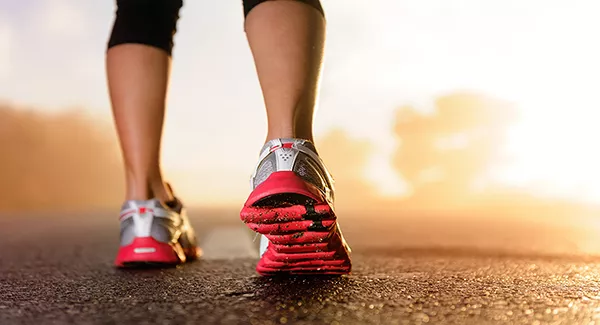By Steve Neville
With news about Covid-19 dominating headlines, there is plenty of advice for people to protect their physical health.
Wash your hands, implement social distancing, use a tissue when you sneeze and avoid crowded places - the HSE has offered lots of advice.
But what about our mental health?
The constantly changing news on the Covid-19 coronavirus, and the relentlessness of information on social media, can have a negative effect on our mental health.
As the Covid-19 news rolls in, we can feel more stressed, more anxious, irritable or start fearing that normal aches and pains might signal the onset of the virus.
The HSE has highlighted some ways that people can mind their mental health during the outbreak.
Stay informed; Set limits for social media
The HSE says: "The constant stream of social media updates and news reports about coronavirus could cause you to feel worried. Sometimes it can be difficult to separate facts from rumours.
Use trustworthy and reliable sources to get your news.
The HSE adds: "On social media, people may talk about their own worries or beliefs. You don’t need to make them your own.
Too much time on social media may increase your worry and levels of anxiety. Consider limiting how much time you spend on social media.
"If you find the coverage on coronavirus is too intense for you, talk it through with someone close or get support."
Healthy routines
If you have a normal routine, try to keep to it as much as possible.
"It’s best if you can keep some structure in your day," is the HSE advice.

"It’s important to pay attention to your needs and feelings, especially during times of stress. You may still be able to do some of the things you enjoy and find relaxing."
The health authority is advising people to:
- Exercise
- Keep regular sleep routines
- Avoid excess alcohol
- Maintain a healthy, balanced diet
- Practice relaxation techniques such as breathing exercises
- Read a book
If you are self-quarantined, the HSE says you can still exercise.
They say:
If you are well, but you have been in close contact with a case of coronavirus you will need to self-quarantine. You will also need to self-quarantine if you have returned from certain countries. This is to stop other people from getting coronavirus.
Self-quarantine means avoiding contact with other people as much as possible by staying at home or in your hotel.
You can still go outside for walks, runs or cycles on your own. But you should not spend time in close contact with other people.
Other household members do not need to restrict their activities unless they are told to.
Don’t make assumptions
The HSE is urging people not to make assumptions about Covid-19, and how it spreads.
"Don’t judge people or make assumptions about who is responsible for the spread of the disease," said the HSE.
"The coronavirus can affect anyone regardless of age, gender, nationality or ethnicity.
We are all in this together.
Support each other
The HSE says it is important to be aware of feelings such as vulnerability or feeling overwhelmed.
"It is understandable to feel vulnerable or overwhelmed reading or hearing news about the outbreak. Acknowledge these feelings," says the HSE.
"Remind yourself and others to look after your physical and mental health.
"If you smoke or drink, try to avoid doing this any more than usual. It won’t help in the long-term."
Talk to children
The HSE says it is important to involve children in plans to manage the coronavirus situation.
They advise giving children and young people “the time and space talk about the outbreak".
They say: "Share the facts with them in a way that suits their age and temperament, without causing alarm.”

The HSE said it is important to talk to children about coronavirus but warned their exposure to news and social media should be limited.
“This is especially important for older children who may be spending more time online now. It may be causing anxiety.”
Childline
The ISPCC has said it will “continue to be there to listen to every child” amid the coronavirus pandemic.
John Church, Chief Executive at ISPCC Childline said it is “understandable that children and young people may have concerns in light of this unprecedented and rapidly evolving set of circumstances which presents new challenges to us all".
“Childline particularly acknowledges the additional stress which may be experienced by young people due to undertake state examinations this year.
“ISPCC Childline is doing everything possible to ensure Childline will continue to be here for every child and young person in Ireland – for whatever might be on their mind. We are hugely grateful to our wonderful volunteers across Ireland for their dedication to the service.”
Mr Church said guidance and support is available to parents and carers to assist them via the ISPCC website.
You can contact Childline by phoning 1800 66 66 66 (24-hours) or free-texting 50101 (10am – 4am daily) or chatting online at Childline.ie (10am – 4am every day).
'Our helpline is there for anyone who is worried'
Ciaran Brennan, from Samaritans Ireland, said they are aware that this can be an anxious time for many.
He told us: "We are reminding people that it’s important that we look after our mental health as well as our physical health. Our key message is that our helpline is there for anyone who is worried, anxious and concerned about the virus."
Mr Brennan added: "Trained volunteers are ready to listen with no judgement, no pressure and will give you the space to talk about what’s on your mind."
To contact Samaritans, phone 116 123 or email [email protected].
Helping the elderly
A support line to help elderly people who are worried about Covid-19 was launched last week.

Alone said it is working with the Department of Health and the HSE on a coordinated national response "to support older people who have concerns" or may be at risk for the virus.
The number to call is 0818 222 024.
The phone line will be open from Monday to Friday, from 8am-8pm.
Professional staff are on hand to answer any queries relating to coronavirus "and give advice and reassurance where necessary."
Managing worry
Breathing exercises are one way to help people manage worry.
The HSE Heads of Psychology Services have advised the following breathing exercises that may help.

Deep, slow breaths
Inhale through the nose fully right down into the bottom of your lungs and exhale through the mouth (repeat 2-3 times and return to our normal breath)
‘Tension Down’ exercise:
a. Stand or sit with feet firmly on the floor.
b. Inhale through the nose and as you do notice any tension you have in your body. Imagine that you are ‘picking up this tension’ as you breathe in.
c. Exhale through your nose and slowly breathe out saying ‘Tension Down’. Imagine the tension flowing down through your body, through your feet and out of the room and far away.
d. You can repeat the Tension Down exercise once or twice at a time. Then any
time you notice yourself becoming tense repeat the sequence.
Breathing out for longer
a. Inhale through the nose to a count of 1,2,3,4
b. Exhale through the mouth for a count of 1,2,3,4,5 or 6
c. Repeat above steps for a minute or two, working at whatever pace is
comfortable for you. When you are used to the practice you can stop the
counting, so long as the out-breath is a little longer than the in-breath.
d. Return to your own natural breath
If you or someone you know has been affected by mental health issues you can contact:
- Samaritans - 116 123, text 087 2609090 or email [email protected]
- Pieta House (Suicide & Self-harm) - 1800 247 247 or 01 623 5606
- Aware (Depression, Bi-Polar Disorder & Anxiety) - 1800 80 48 48
- Grow (Mental Health support & Recovery) - 1890 474 474
- Bodywhys (Eating Disorders Associations of Ireland) - 1890 200 444
- Childline (for under 18s) - 1800 66 66 66






